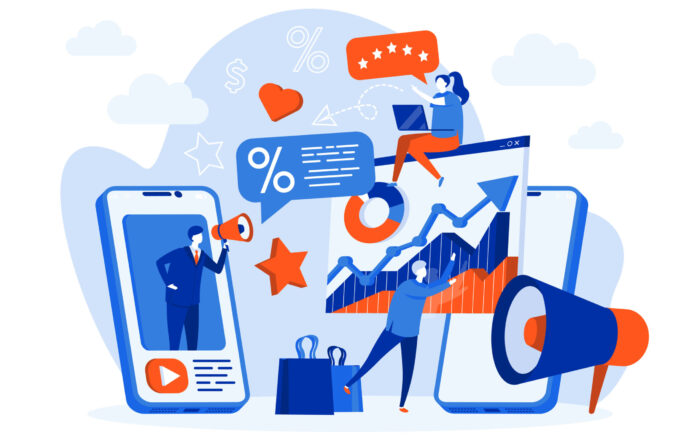How To Leverage Social Media To Improve Your SEO
Getting your name to appear at the top of the search results is a complex process and one that can involve growing your social media.
Now, social media doesn’t have a direct impact on SEO; a post from your business going viral won’t mean your business will be at the top of the search results. However, it can still indirectly impact your social media.
This post hopes to explain the relationship between the two and also show you how you can grow your social media.

What is the Relation Between Social Media and SEO?
As mentioned, social media engagement is not a direct factor in growing your SEO. At least, that’s what Google claims. In truth, the exact algorithm is a mystery. However, there are several ways that social media can improve SEO.
One example is bringing more traffic to your website. Say your post goes viral, and you promote your website in the comments. If there’s an uptick in traffic, this may affect its algorithm ranking.
Another way that social media can improve your SEO is by generating backlinks. If your social media is filled with links to your site, this may contribute to your SEO.
Social media can also create brand visibility and authority for potential customers. Someone may see your social media a lot on Facebook or Instagram. Then, when they’re searching for businesses in your niche, they visit your website and remember a post of yours that they liked. Thus, this improves your SEO by having your branding stick with your potential audience.
So, while fine-tuning your website is still the best way to grow your SEO, growing your social media presence is important, too.
Content is King for Both
Content rich in keywords can help you grow your website. The same applies to social media, albeit with hashtags. With both, you need high-quality content that will engage the audience you’re trying to target.
With websites, informative blog posts work well. You may also add videos from YouTube or other video hosting sites on there. Depending on who visits your website and who visits your social media, your audience will be the same.
With social media, you can repurpose content you use on your website or vice versa. That said, copying/pasting the content directly can be bad for your SEO and make those who saw the old content unfollow. Be sure to tailor it or add something fresh to the content.
When Should I Link to My Website?
When you make social media posts, when should it promote your website? Some sites will only let you put a link in your bio, while others will let you put it in the posts or comments. We recommend the comments on your post, as this is best for the algorithm.
You should follow the 80-20 rule. This rule states that 80% of your content should be entertaining and informative to your audience.
Meanwhile, the remaining 20% should be more promotional. If you make more than 20% of your content promotional, people may not want to engage with it. On the other hand, if you don’t make enough of your content promotional, your branding may be lost.
The Importance of Engaging Content
With both social media and your website, you want content that will engage, as this will put the social media and the Google algorithm more in your favor. You want to make content that will have people commenting with their two cents, or posts that will make people comment “Wow!”
Another way to increase engagement is via polls or quizzes. Some social media features, like Instagram Stories, make this easy. Polls also make your audience feel like their voices are being heard.
If you want more engagement, you can use features that the algorithm favors a lot. For example, you can always try Instagram comments, as that’s what viewers are watching. If you get more instagram comments, this can lead to people visiting your page.
Social media already has a ready-made comment section for your posts. For your website, you may need to implement a widget where people can give their thoughts. Disqus is one such example.

Posting at the Right Times
Your content should be uploaded and reshared at the right times on both social media and your website. Check your social media to see when your audience is the most active and when your website has the most traffic.
Most apps will let you schedule posts so you can post at times when you might not be able to. That said, we do recommend experimenting with times. Unconventional times may lead to people who are more active with engagements.
The Power of Analytics for Both
Both social media and websites have powerful analytic tools you should use. With social media, you can use their built-in insights tools to see audience demographics, which posts are performing the best, and who is clicking on your links.
With website tools like Google Analytics, you can see where website traffic is coming from. If a chunk of your website traffic is coming from your social media, this means you’re doing a great job. You’re also doing great if people are clicking your social media links.
On the other hand, if people aren’t clicking the links, you may need to adjust your content strategy. You may be promoting your links too much or not at all. Or, you may need to change where you post the links, as the algorithm can be fickle.
Conclusion
Social media is closely linked to your website’s SEO. While there may not be a direct connection, the things you do on your social media page can lead to more engagements in the form of people clicking on any links you post.
On the other hand, the content you make for your website can be repurposed into social media posts. By tending to both, you can grow your brand and get your name on the map!

Jim’s passion for Apple products ignited in 2007 when Steve Jobs introduced the first iPhone. This was a canon event in his life. Noticing a lack of iPad-focused content that is easy to understand even for “tech-noob”, he decided to create Tabletmonkeys in 2011.
Jim continues to share his expertise and passion for tablets, helping his audience as much as he can with his motto “One Swipe at a Time!”
